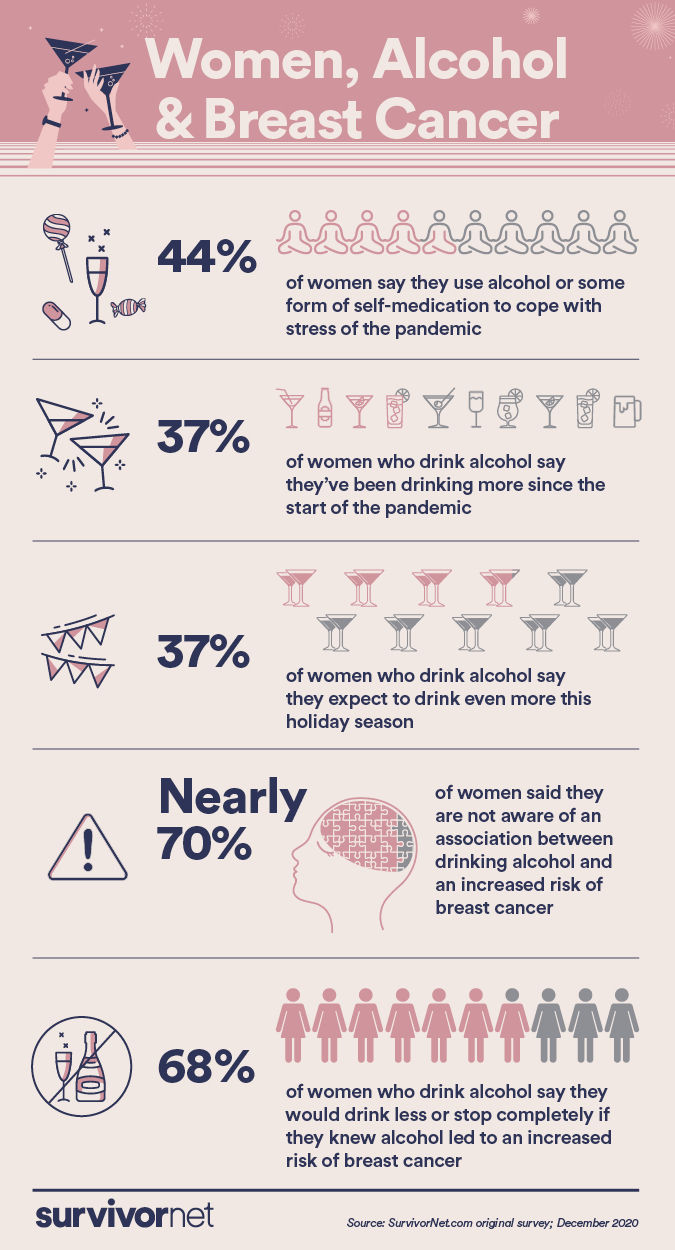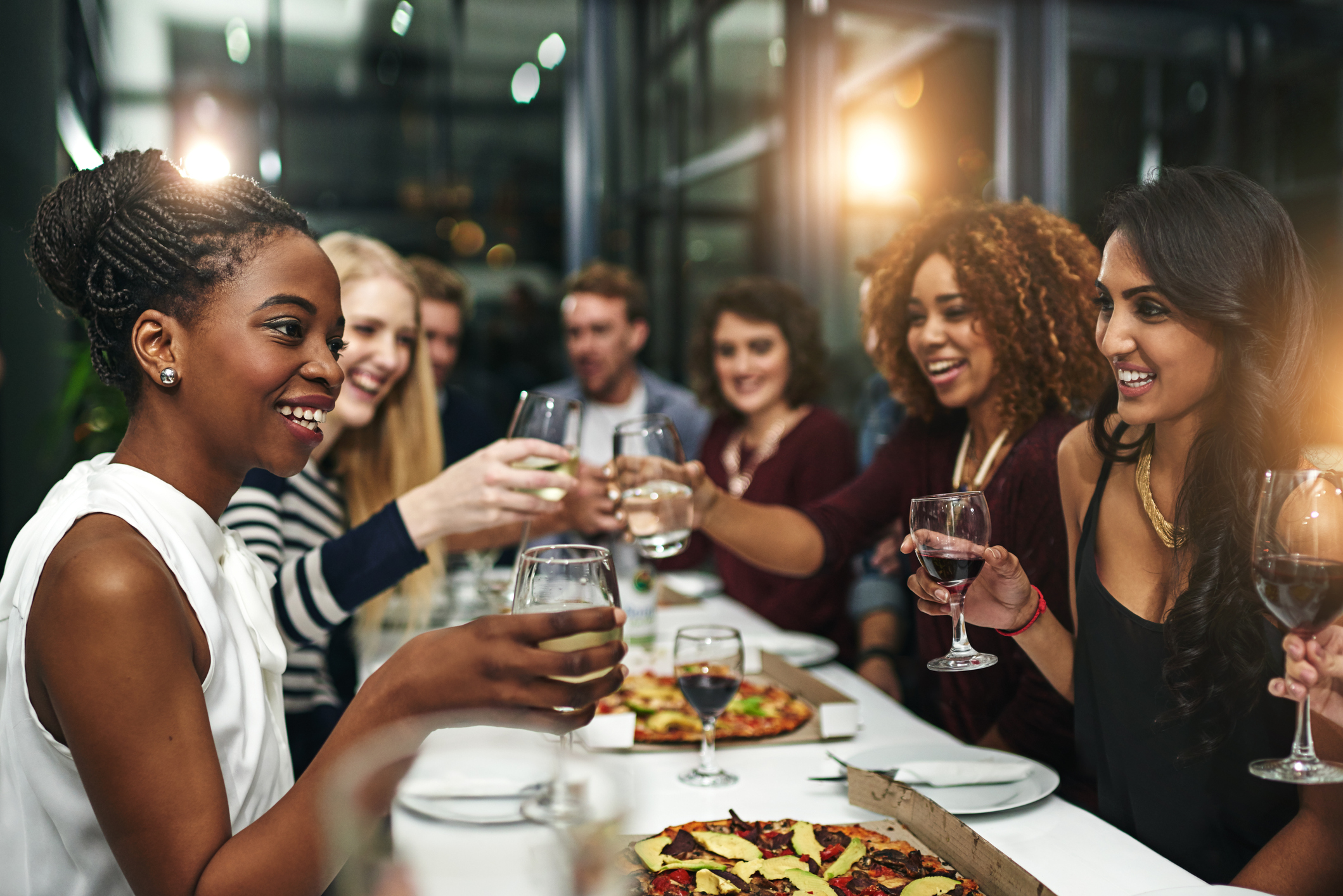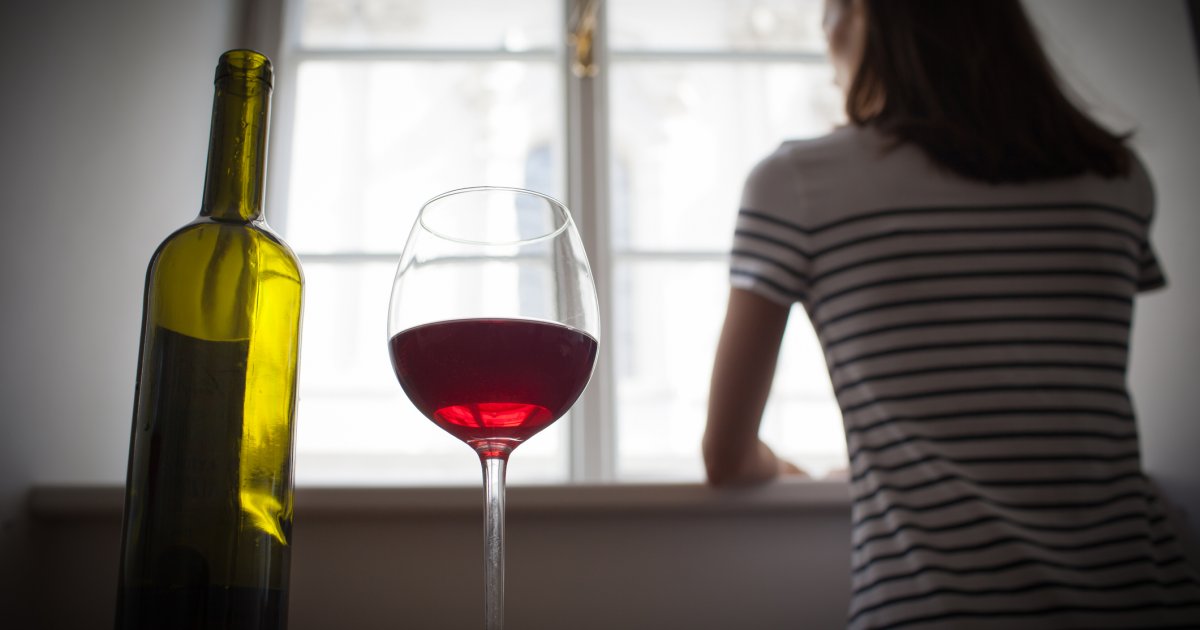Women & Alcohol
- Nearly 70% of women say they are not aware there is an association between drinking alcohol and an increased risk of breast cancer.
- 37% of women surveyed said they’ve increased their alcohol intake over the last eight months through the pandemic, and 37% also expect to increase their alcohol consumption this holiday season.
- 68% of women said they would drink less or stop completely if they knew alcohol led to an increased risk of breast cancer.
“If you want to have absolutely no risk from alcohol, then don't drink at all. But probably having less than four glasses a week of alcohol is probably OK."
We surveyed 530 women across the U.S., ages 30 – 50, about their knowledge of the associated risk between alcohol and breast cancer and about their drinking habits throughout the last eight months. SurvivorNet found that not only have women been drinking more, but many of them were completely unaware drinking is a risk factor associated with breast cancer. There is a direct correlation between alcohol consumption and breast cancer risk.
Dr. Hiram S. Cody, an Attending Surgeon of Breast Service, Department of Surgery, at Memorial Sloan Kettering Cancer Center, says, “About 10% of all women will develop breast cancer in their lifetime and alcohol (in addition to its other health risks) clearly increases this risk in a dose-dependent fashion: more alcohol equals more risk. Few interventions can reduce the risk of breast cancer, but this is one of them, so for all women who drink, moderation is the way to go.”

As we head into the holidays, 37% of women say they anticipate drinking more over the upcoming holiday season. We don’t know if that’s celebratory drinking or drinking brought on by stress and anxiety, but given the year we are all having, our guess is it’s a little of everything.
Related: Does Alcohol Impact the Risks for Colon and Other Cancers?
Drinking and Stress
Dr. Comen suggests that women who are feeling stressed and turning to alcohol might want to examine their motivations. “I would say if you're worried about it, that’s good because you're thinking about how to take your health more seriously. It's the same with food why are you reaching for the bottle? Are you doing it with your family? Are you doing it with yourself? Think about the motivation behind it. Particularly if you've increased your drinking. Instead of having two glasses of wine, just have one. Set realistic limits [for yourself].”
Related: Alcohol Intake Has a Big Impact on Colon Cancer Surgery
“I say, ‘Let's think about how we can manage your stress better,'” says Dr. Comen. “‘What's really stressing you out? And are there other ways to cope with that anxiety? Can we get you to take a walk and breathing fresh air? Can we delegate the many responsibilities that may be weighing you down?'”
As we approach the holiday season in the midst of a pandemic, these are great questions for us all to be asking ourselves.
Alcohol & Breast Cancer
This year, the American Cancer Society (ACS) updated its recommendations when it comes to alcohol consumption. “Alcohol use is one of the most important preventable risk factors for cancer, along with tobacco use and excess body weight. Alcohol use accounts for about 6% of all cancers and 4% of all cancer deaths in the United States. Yet many people don't know about the link between alcohol use and cancer,” the ACS said.

There is a clear link between alcohol consumption and breast cancer risk, as well as risk for other cancers. In November 2017, the American Society of Clinical Oncology published a statement citing evidence that links alcohol to cancer. The statement called for reduced alcohol consumption as a way to cut people’s cancer risk.
Dr. Comen said in an earlier interview that “One of the things that we know [due to the statement from ASCO], is that actually, alcohol does increase the risk of breast cancer. It doesn’t dramatically increase the risk of breast cancer, but with every drink, there is a linear response.”
Related: New Research Claims All Breast Cancer Patients Should Get Genetic TestingIs It True?
“What that means is a linear response to risk, meaning that each drink increases a woman’s risk for breast cancer. So binge drinking, it’s not good for anybody,” she said. “And it’s also not good for a woman’s increased risk of breast cancer. And so patients ask me this all the time well, how much can I drink? If you want to have absolutely no risk from alcohol, then don’t drink at all. But probably having less than four glasses a week of alcohol is probably OK.”
Related: What Are the Options if You Have a High Risk of Developing Breast Cancer?
Dr. Comen Explains How Alcohol Can Increase the Risk of Developing Breast Cancer
She isn’t advising us to never take a drink, instead, Dr. Comen tells patients to listen to their gut, and go with their comfort level. “I think we’re learning every day about what the contribution of alcohol may be to cancer. And while we know that a lot isn’t good, I don’t necessarily tell patients, you can’t ever drink. But I do have some patients who say, I am so terrified that every time I take a drink of alcohol that I’m going to get breast cancer. Well, don’t drink alcohol. If you’re binge drinking, you are increasing your risk of breast cancer.”
#DrinkLessforYourBreasts Movement
As a way to encourage women to think about the alcohol and breast cancer connection, the “#DrinkLessforYourBreasts” movement is gaining traction.
Related: 6 Tips to Help You Avoid Alcohol When Faced With Stress of a Cancer Diagnosis
The Alcohol Research Group (ARG) is responsible for this social media campaign, which was created to help people better understand the connection between the breast cancer risk and alcohol. Dr. Priscilla Martinez is an ARG scientist, and she says, reports Central Illinois Proud, "We've known for a long time that alcohol is a risk factor for breast cancer. The World Health Organization declared alcohol a carcinogen in 1988," Martinez says. "There has never been a campaign in the United States to let women know that alcohol use is a risk factor for breast cancer."
View this post on Instagram
View this post on Instagram
View this post on Instagram
Many people on Instagram are rolling with the slogan, and sharing some creative posts as a result. We love to see this elevated public awareness around the link between breast cancer risk and drinking. Hopefully, it will have a positive impact on the choices women make going forward.
Learn more about SurvivorNet's rigorous medical review process.


